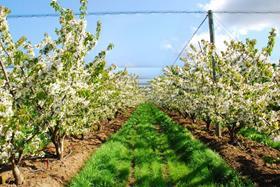
Tasmanian fruit growers are concerned about the potential outcome of a Senate inquiry into the use of the insecticide Fenthion, according to Fruit Growers Tasmania’s Phil Pyke.
The Australian Senate’s Rural and Regional Affairs committee is currently deliberating on the Australian Pesticides and Veterinary Medicines Authority’s (APVMA) decision to restrict the use of Fenthion on soft skin fruits. The APVMA has raised concerns that exposure can cause vomiting, nausea and diarrhoea.
Fenthion is currently not registered in European Union, USA, Canada or New Zealand, but is commonly used in Australia to guard against pests like Queensland Fruit Fly.
Pyke told the ABC that Tasmanian growers fear APVMA’s restrictions will be introduced without the introduction of an alternate insecticide, jeopardising the state’s fruit fly free status.
“By the use of fenthion being restricted, it actually increases our vulnerability in the state,” Pyke said. 'As farmers are trying to find alternatives to manage fruit fly, an integral part of the management practise is no longer there. And as fruit fly has now been declared endemic in Victoria, we're certainly concerned about what happens if we have an outbreak and what we can then respond to that outbreak with.'
The Rural and Regional Affairs Committee are expected to report on the matter next week.
Meanwhile, growers in the major fruit production hub around Orange, NSW, will have the opportunity to speak with one of the world’s leading authorities on fruit fly research, USDA entomologist Dr Eric Jang, next week.Jang and the NSW Department of Primary Industries (DPI) will present insights into fruit fly management at a free workshop to be held on 14 July.
“With 35 years of work in the field, Dr Jang has successfully used attractants to underpin the detection, control and eradication of invasive fruit fly pests around the world,” DPI’s leader for horticultural development, Myles Parker, told Fairfax Media.



